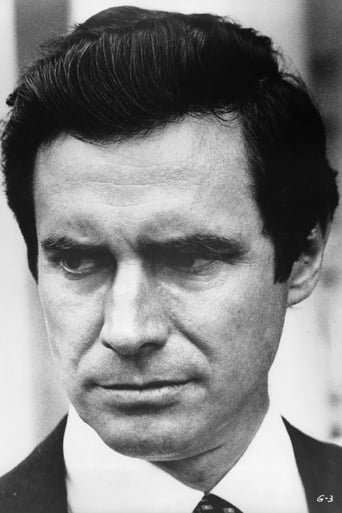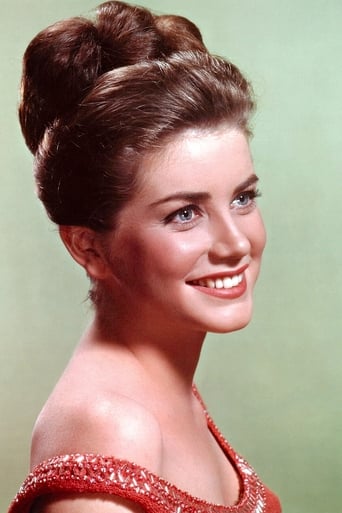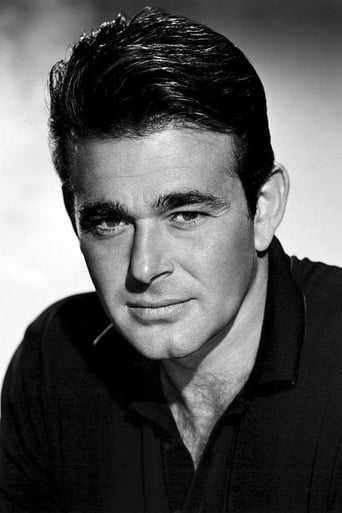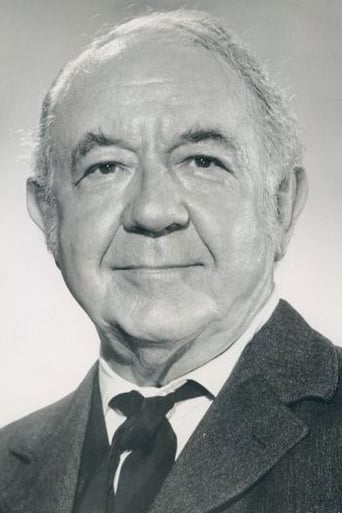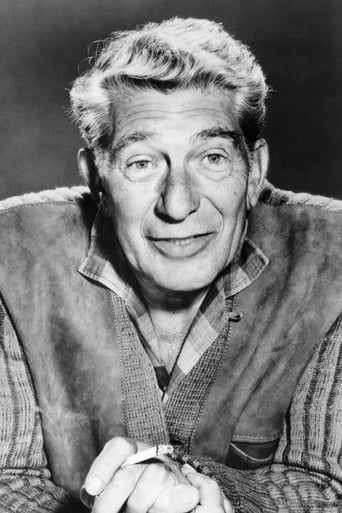ThiefHott
Too much of everything
VividSimon
Simply Perfect
Steineded
How sad is this?
Platicsco
Good story, Not enough for a whole film
mark.waltz
On occasion, Hollywood turns out a picture of simplicity, faith and hope that the cynical critics either look on as preachy or pretentious. Some lives of the saints seem almost too impossible to achieve, let alone believe. Certain lives become legendary, because of how the person seemed to be blessed with the ability to rise above earthly temptations and lead them in becoming some of the most beloved historical figures of all time.Such was the life of Francis of Assisi, the 13th Century monk who founded the Franciscan order. He wasn't always so saintly; In fact, this film shows his sudden transformation from a fun loving young man heading off to war, and returning as a deserter transformed by divine inspiration. This, of course, creates conflict both with the church and his social circle, but Francis utilizes his guidance from the Lord into fulfilling his destiny. A sweet and simple tale, this is elaborately filmed and well acted, with Bradford Dillman in the title role, Dolores Hart as a young girl who follows in his footsteps and becomes a nun (which Hart would do later in real life), and Stuart Whitman as Dillman's old friend who was in love with Hart and blames Francis for leading Hart to her vow of poverty and chastity.It should be noted that 20th Century Fox had been filming inspirational stories for decade, most notably "The Song of Bernadette" and "I'd Climb the Highest Mountain", as well as Biblical epics such as "The Robe" and "David and Bathsheba". This one is presented with such innocent and simple joy that it seems almost effortless, and to cynics, probably too sanctimonious. The tale of Francis of Assisi was filmed again only a decade later as "Brother Son, Sister Moon", where certain critics described Francis being presented as a flower child from a past era.
wes-connors
In early 13th century Italy, bird-watching Bradford Dillman (as Francis Bernardone) decides to enlist. He is recognized as a disciple of Jesus Christ by a beggar, but Mr. Dillman isn't fully aware of his godliness, yet. We know it from the opening. The son of a merchant, Dillman befriends fellow soldier Stuart Whitman (as Paolo). They become so close Dillman gives his extra women to Mr. Whitman. Outside of the barrooms, both become rivals for more virginal blonde Dolores Hart (as Clare)...The men go off to war, but Dillman deserts when the voice of God tells him, "Put away the sword." Dillman is shunned by his community and imprisoned while he waits for God to give him additional directions… Poor Dillman. Not that is performance is award-worthy, but, at least he's reverential and ready for action. Dillman also ages believably, in both appearance and manner. However, it's not enough to pull producer Plato Skouras' epic last film together...Nearing retirement, director Michael Curtiz is clearly slowing down. Whitman seems to be in the wrong century. Before she loses her long blonde hair, Ms. Hart appears to be in the wrong country. Nobody else is on screen long enough to contribute much. The famous subject is given a silly story treatment. Assisi blesses animals, for example, by greeting them. A nursing pig is greeted, "Good morning, sister pig." But right before that, Dillman says, "Good morning, brother cow." And, that's no bull.**** Francis of Assisi (7/12/61) Michael Curtiz ~ Bradford Dillman, Dolores Hart, Stuart Whitman, Cecil Kellaway
thirteenprime
When I was in fourth grade in Catholic school, the nuns trooped us over to the local theater one sunny afternoon in the fall of 1961 to see this film. I remembered nothing about it, except for a vague notion that it had bored my sandals off. When I saw that Fox Movie Channel had it On Demand, I gave it another try, just to see. (I don't think I've ever had such an enormous gap between viewings of a film.)And it's not bad at all. The first half-hour or so, unfortunately, is not good. It looks tacky and cheap, like a '60s TV-movie. There's a ludicrous battle scene early on, but this marks the point after which the film starts to get better. The Italian locations are beautiful. The film is overly reverential and was made for a general audience fifty years ago, so we don't really get to see how much of a party animal Francis was before his conversion. Bradford Dillman pulls off the near-impossible job of making this plaster saint interesting. The incredibly lovely Dolores Hart plays Clare, the noblewoman who becomes the first Franciscan nun (and Dolores actually did enter the convent the year after this film, and is still there today, and remains as lovely as ever). There is a subtlety in the relationship between Francis and Clare that often works, but occasionally you get the feeling that the two are behaving in such a restrained way that they might actually be 13th-century Vulcans. Of course, the director here, Michael Curtiz, is responsible for the most romantic movie of all time, Casablanca. Whatever is there between Francis and Clare is left subtle enough for us to appreciate while not peeving the more conservative members of the audience. Stuart Whitman, the nobleman who loves Clare and serves as the third member of this non-triangle, seems miscast here. Stu was never really the nobleman type.Interestingly, the film takes a dim view of the Crusades, as it shows Christian forces raping and pillaging their way to the Holy Land. There's a scene with Francis meeting the leader of the enemy Saracens that shows their Sultan in a much more civilized light. The film also states that Francis felt his mission from God was to save the Church from its own materialism and heresy, pretty much along the lines of what Martin Luther would try to do two and a half centuries later. I'm not sure the nuns of 1961 really understood what was going on here.My non-Catholic wife says that Francis has always been well thought of outside the Catholic religion, mainly because he loved animals and is generally felt to have been kind and modest. Not too many reputations have survived eight centuries of questioning and doubt intact. I really didn't expect to like this film, or to get all the way through it, but I was happily surprised to find that I rather enjoyed it.
sddavis63
This recreates a lot of the legends about Francis of Assisi - one of the best known of the Roman Catholic saints, who is also admired and much quoted by Protestants. There's no doubt that the movie also recreates some of the historical facts about his life - his disagreement with his father over the course his life should take, his visit to the Holy Land and encounter with the sultan and his struggle to gain recognition of his new order from the Pope. This also takes both the legends and the reality to unnecessary extremes at times - such as Francis' encounter with the cheetahs in the Sahara as he was seeking out the sultan. Throughout the whole movie, Francis is portrayed in a too pious light; his humanity (I mean by this his flesh and blood reality, as opposed to his kindness) seemed lost in the mix. This is not especially surprising when you consider that the movie is based on a hagiography (a biography of a saint) written by by the Catholic author Ludwig von Wohl, whose own commission from Pope Pius XII was to "write about the history and mission of the Church in the world." Clearly the Catholic Church wants its saints portrayed in the best light possible, and so a certain sense of veneration for Francis in a movie based on von Wohl's work is inevitable.Setting that aside (and even Protestants admire Francis, so I have no major criticism) what I most enjoyed here was the continual reflection in the movie on the state of the church and the Christian faith and Christians; the constant temptation (to which we all give in) to compromise the standards of Christ in favour of the standards of the world. The movie continually comes back to that theme; one could even say it revolves around it, as the primary battle Francis fights is to keep his order true to his "rule" - which was essentially the teachings of Christ that His own followers should renounce worldly possessions. Considering the repeated inability of Christians and the church to truly live up to the standards of Christ, the most meaningful words here were probably put on Francis' lips (although I'm unclear whether he actually spoke them): "if men were more perfect, we would need less compassion." So true.This is at times interesting - but it's still significantly weakened in my view by its veneration of Francis rather than its objective portrayal of his life.

